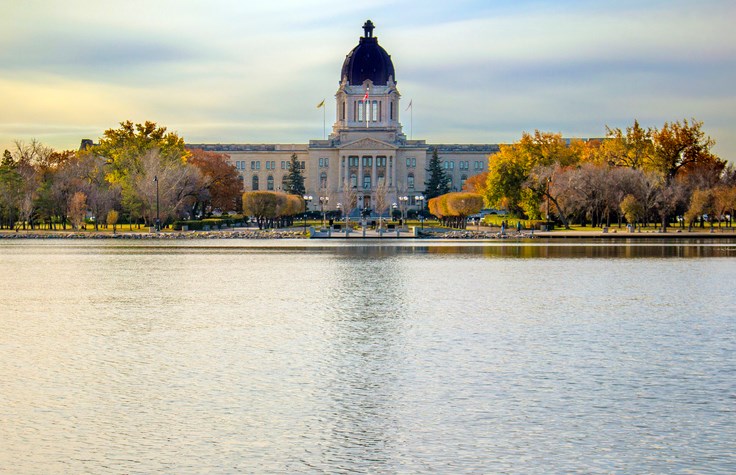MOOSE JAW — Saskatchewan’s finance minister says the province’s fiscal situation is looking “pretty good,” while ministry officials are working on producing a first-quarter report for the 2025-26 year.
Reiter said Saskatchewan is first and second in the country when it comes to its credit rating and net debt-to-GDP, respectively. However, the government “always wants to do better,” since a better fiscal position allows it to provide more services.
“So there’s some headwinds right now, no doubt … . There’s going to be some extra costs (with things like fighting wildfires),” he said. “But those are needed costs. We’re happy to do that.”
Continuing, he said the price of oil is down, although higher potash revenue could mitigate the decrease of the former; tariffs have not yet had “a huge impact.”
The other major fiscal challenge is the tariffs China imposed on Canada’s canola industry, which are having a “significant impact,” said Reiter. The province wants Ottawa to address that issue immediately, while Premier Scott Moe has lobbied the prime minister and other federal ministers to do something.
Meanwhile, Ministry of Finance officials are working on a first-quarter fiscal report and could produce it by late August. However, the finance minister was unable to offer a preview of what it might show, aside from more expenses for fighting fires and fewer revenues from oil and gas.
Reiter said it was too early to tell whether the government would end the year with a $12-million surplus, and even though the Opposition NDP “made a big deal about it,” he noted that “it’s largely a balanced budget.” Moreover, based on geopolitical tensions — specifically, Israel’s attack on Iran and the effect on oil — the budget could “tilt on either side.”
The finance minister added that his job is to look at the situation “from a big picture” perspective and, regardless of how small the surplus or deficit is, ensure that the province is fiscally sound.
The Hon. Tim McLeod, MLA for Moose Jaw North, said Saskatchewan’s positive fiscal position and sound fiscal management show in the investments that the government is making. This includes the recent announcement of 77 new and enhanced health-care positions across the province, including seven in Moose Jaw.
Furthermore, he pointed to “huge investments” going to fight forest fires, to creating the Marshals’ Service and adding more officers province-wide, and into social housing and addiction treatment centres.
Reiter pointed back to the spring budget, where the province did not raise taxes but targeted specific areas like health care, community safety and education with more money and provided affordability measures for citizens.
The reason the government did all those things, he added, was because of a strong economy and higher tax revenues.
Reiter said he thought the government was doing enough to prepare for the future when the province’s non-renewable natural resources ran out. He pointed to the efforts of his predecessor, Donna Harpauer, who worked to ensure revenue from natural resources accounted for roughly 15 per cent of the budget.
“It’s kind of a healthy area,” he said.
Continuing, Reiter said Saskatchewan has “been blessed” with an abundance of natural resources, while most times, prices for such resources are cyclical. That is the reason the government must meet with industry experts to learn what the price of oil or potash could be and make financial estimates accordingly.
“So … the most fiscally responsible way to do that is just to make sure you don’t get too heavily reliant (on one natural resources),” he added. “And we think we’ve found a pretty good balance where we’re at right now.”




